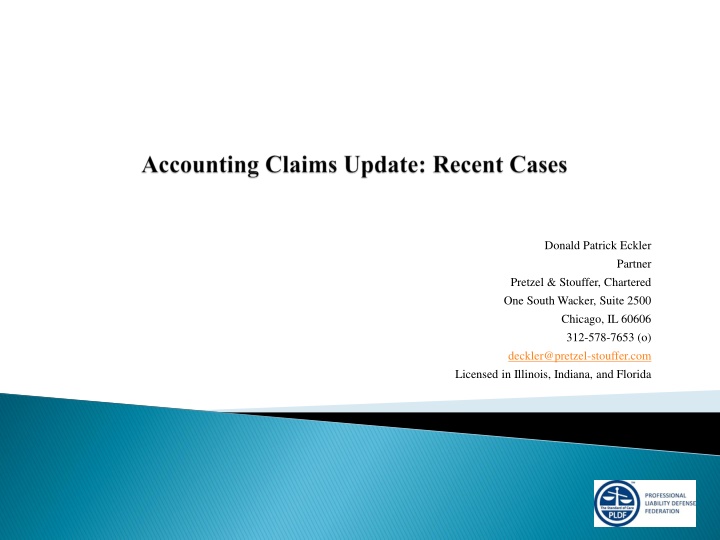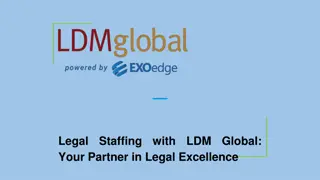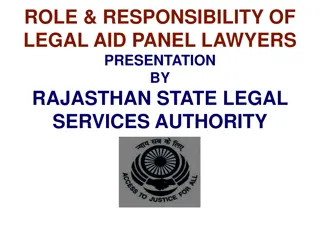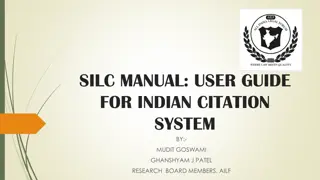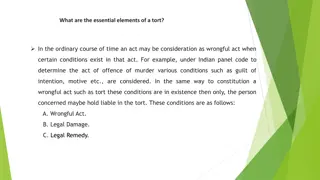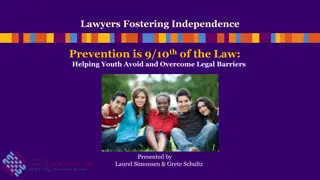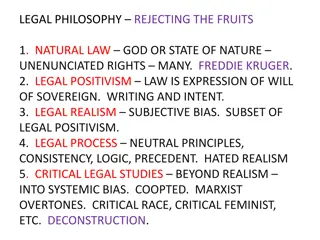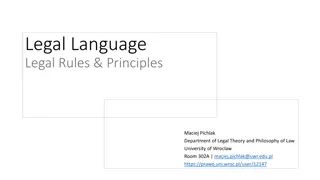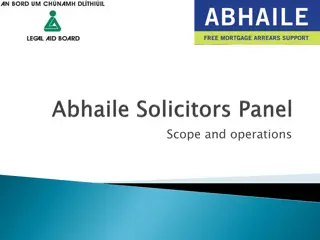Legal Case Analysis: Brunton v. Kruger
Donald Patrick Eckler, a partner at Pretzel & Stouffer, Chartered, represents clients involved in a will contest case between June Brunton and her family members. The case involves allegations of undue influence and diminished capacity in the execution of trust documents. The court examines the confidentiality privilege of accountants in estate planning services and the waiver of privilege when documents are provided to the estate.
Download Presentation

Please find below an Image/Link to download the presentation.
The content on the website is provided AS IS for your information and personal use only. It may not be sold, licensed, or shared on other websites without obtaining consent from the author.If you encounter any issues during the download, it is possible that the publisher has removed the file from their server.
You are allowed to download the files provided on this website for personal or commercial use, subject to the condition that they are used lawfully. All files are the property of their respective owners.
The content on the website is provided AS IS for your information and personal use only. It may not be sold, licensed, or shared on other websites without obtaining consent from the author.
E N D
Presentation Transcript
Donald Patrick Eckler Partner Pretzel & Stouffer, Chartered One South Wacker, Suite 2500 Chicago, IL 60606 312-578-7653 (o) deckler@pretzel-stouffer.com Licensed in Illinois, Indiana, and Florida
A licensed or registered certified public accountant shall not be required by any court to divulge information or evidence which has been obtained by him in his confidential capacity as a licensed or registered certified public accountant. Section shall not apply to any investigation or hearing undertaken pursuant to thisAct. 225 ILCS 450/27. This
The daughter of Helen and Gordon Kruger, June Brunton, initiated a will contest against her brother Robert Kruger and other family members. Brunton v. Kruger, 2015 IL 117663, 4. June, who was not named in the trusts of her parents, alleged undue influence on behalf of certain family members who were named as beneficiaries of the trusts, including Robert. Id. She also cited her mother s diminished capacity at the time the trust documents were executed as being subjected to any outside influence. Id.
Prior to their death the Krugers consulted with the accounting firm of Striegel, Knobloch & Co., LLC (Striegel) during the process of planning their estate. Id. at 5. Striegel provided information to assist the attorneys for the Krugers in preparing trust documents and pour over wills. Id. The estate issued a discovery subpoena which was later followed by Brunton issuing an identical subpoena for the same information. Id.
One of Striegels CPAs complied with the Estates subpoena, turning over all of the documents in its possession that related to the Krugers estate planning. Id. at 7. The CPA did not comply with Brunton s subpoena and Brunton filed a motion to compel compliance. In a motion to quash the subpoena, Striegel invoked Section 27 of the Act claiming that the documents were protected from disclosure. Id.
The Court first held that the legislature intended the privilege of Section 27 to apply to information obtained by an accountant in the course of providing estate planning services as it applies to any of the expressly listed activities in Section 8.05(a) of the Act. Id. at 20-21. Next, the Court held that the testamentary exception does not apply to the accountant-client privilege. Id. at 48. Most importantly, the Court held that the accountant is the holder of the privilege in Section 27. Id. at 33-34. However, the Court found that the privilege was waived when the accountant turned the documents over to the estate. Id. at 85.
There have been a swath of statute of limitations cases from across the country and it should remind us of the basics when analyzing a claim and preparing our defense. Kipnis v. Bayerische Hypo-Und Vereinsbank, AG, 784 F.3d 771 (11thCir. 2015), First American Bank v. Blackman Kallick, LLP, 2014 IL App (1st) 141149-U (1st Dist. 2014), JGM Transportation, Inc. v. Lewis & Knopf CPAS, PC, 2015 Mich. App. LEXIS 353 (2015), Komolov v. Baranik, 2015 N.Y. Misc. LEXIS 1994 (2015), and Board of Trustees of IBEW Local 43 Elctrical Contractors Health and Welfare, Annuity and Pension Funds v. D Arcangelo & Co., LLP, 124 A.D.3d 1358 (4thDist. 2015) all dealt with the statute of limitations. The Kipnis court certified a question to the Florida Supreme Court of when the claim accrued, when the IRS issued its notice of deficiency or when the dispute with the IRS was concluded? In contrast, First American court held that the statute of limitations began to run when the plaintiff knew that a deadline to file the tax returns had been missed, which immediately caused damage to the plaintiff, not when the IRS actually rejected the carryback adjustment.
The JGM, Komolov, and Board of Trustees cases dealt with the continuing representation doctrine that could be used to toll the statute of limitations. In JGM, the Court held that the tax services provided were discrete engagements to prepare tax returns and not generalized accounting services and that therefore the engagement ended after the completion of each tax return. Accordingly, there was not continuing representation. In Komolov, the Court held that the continuous representation doctrine did apply because after preparing the initial 2008 return there was an amended return prepared in 2012 which was used to correct erroneous information in the original return. In Board of Trustees, which was an audit case arising out of the Madoff scandal, the Court, inter alia, held that the plaintiff sufficiently alleged facts to plead the continuing representation by the defendant tolled the statute of limitations.
